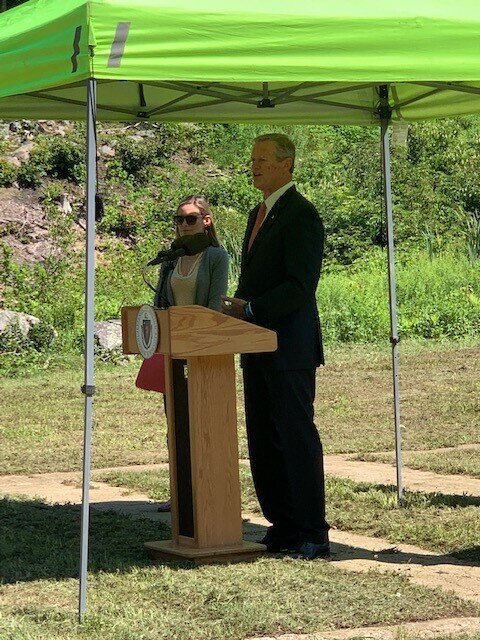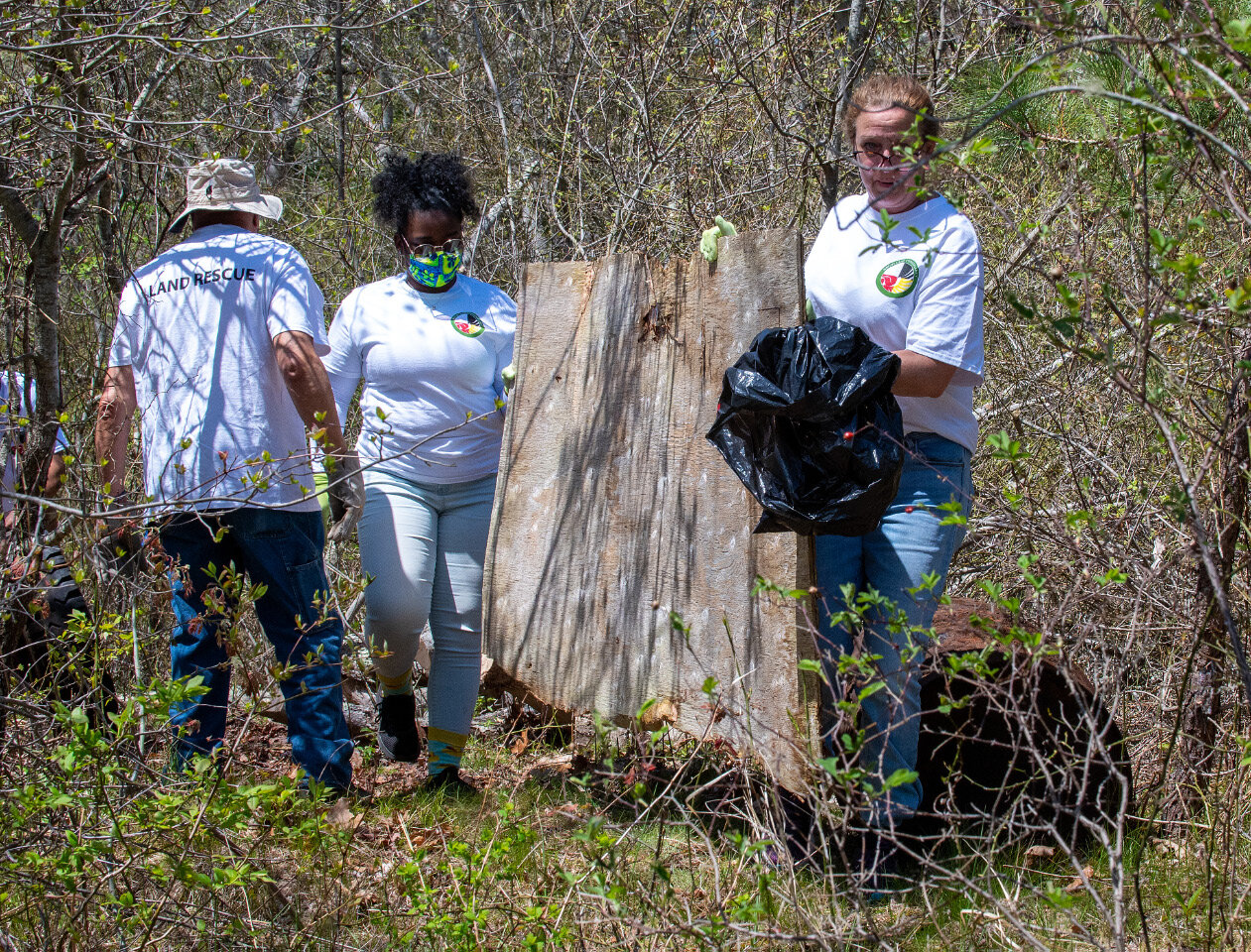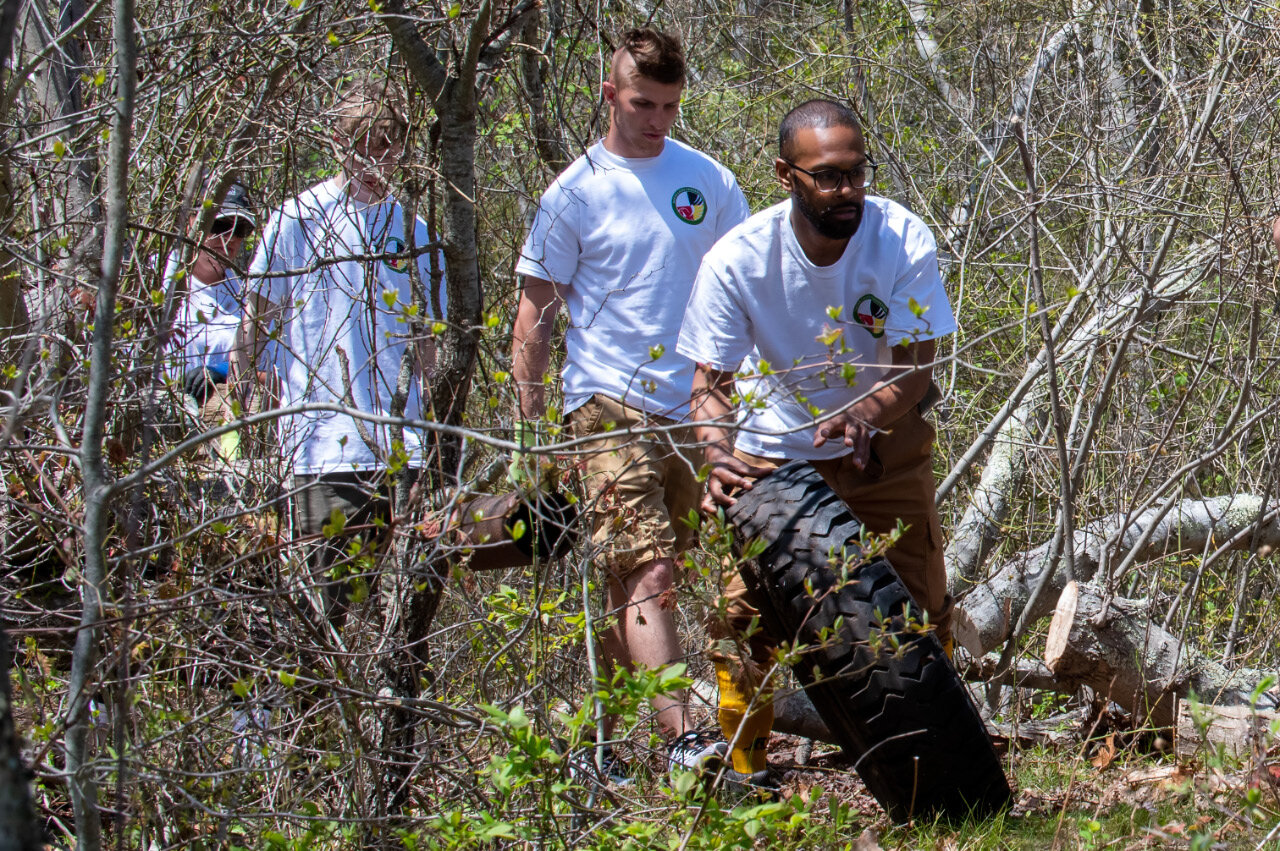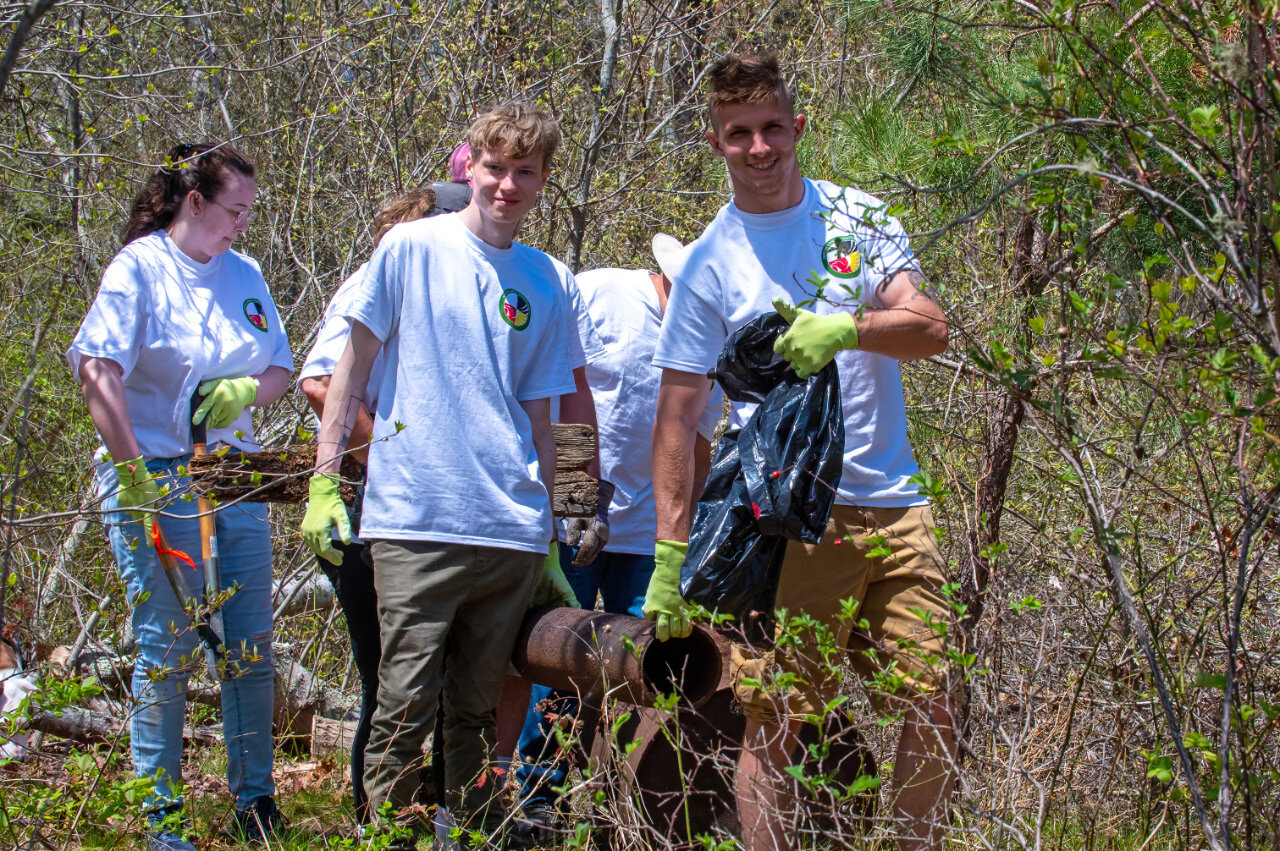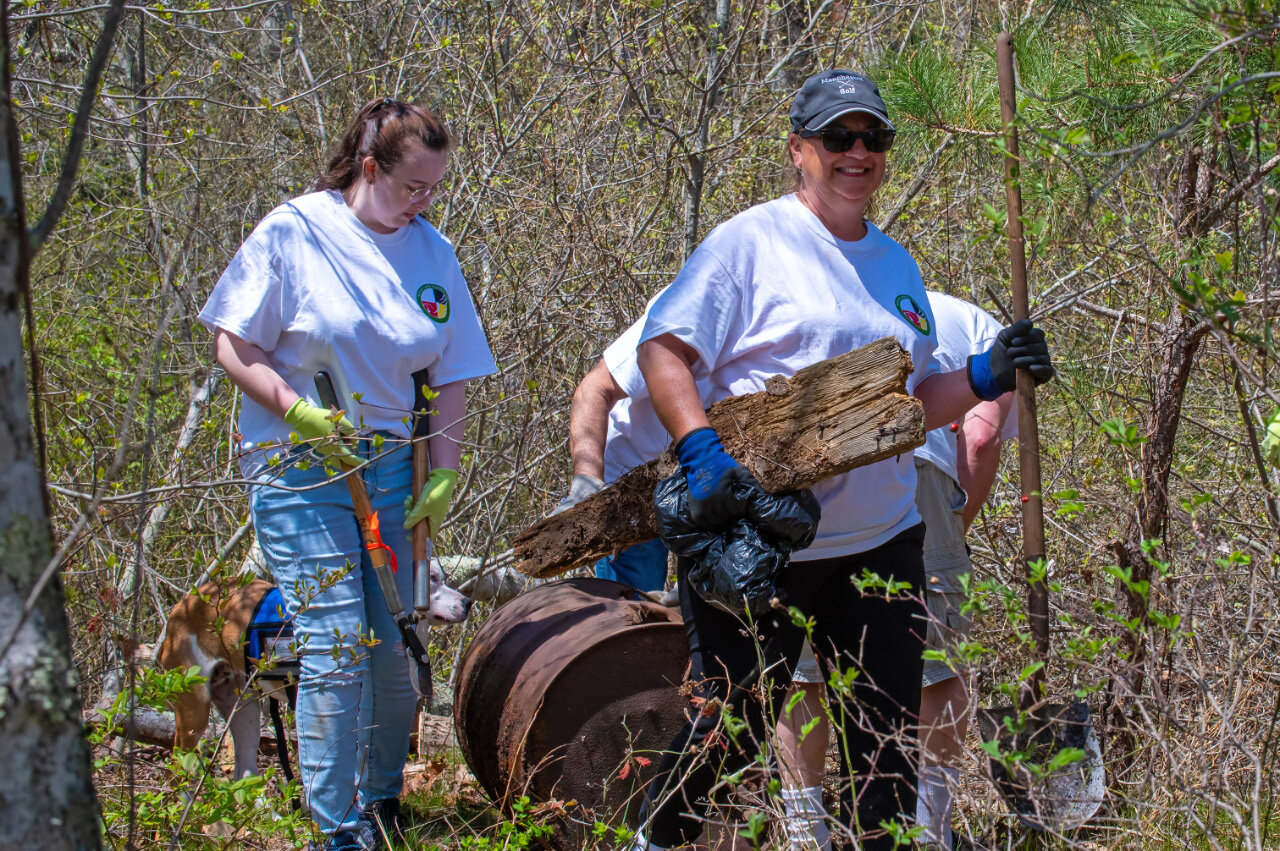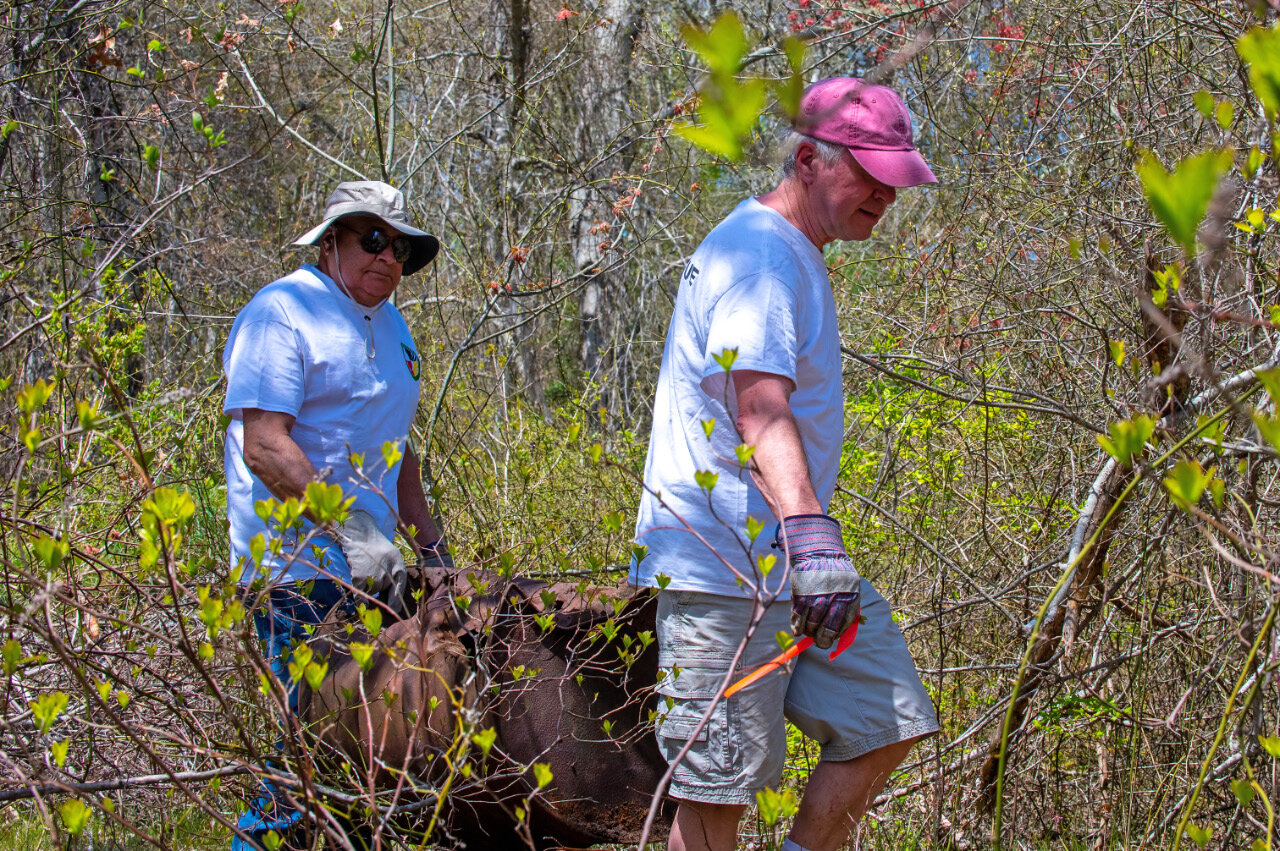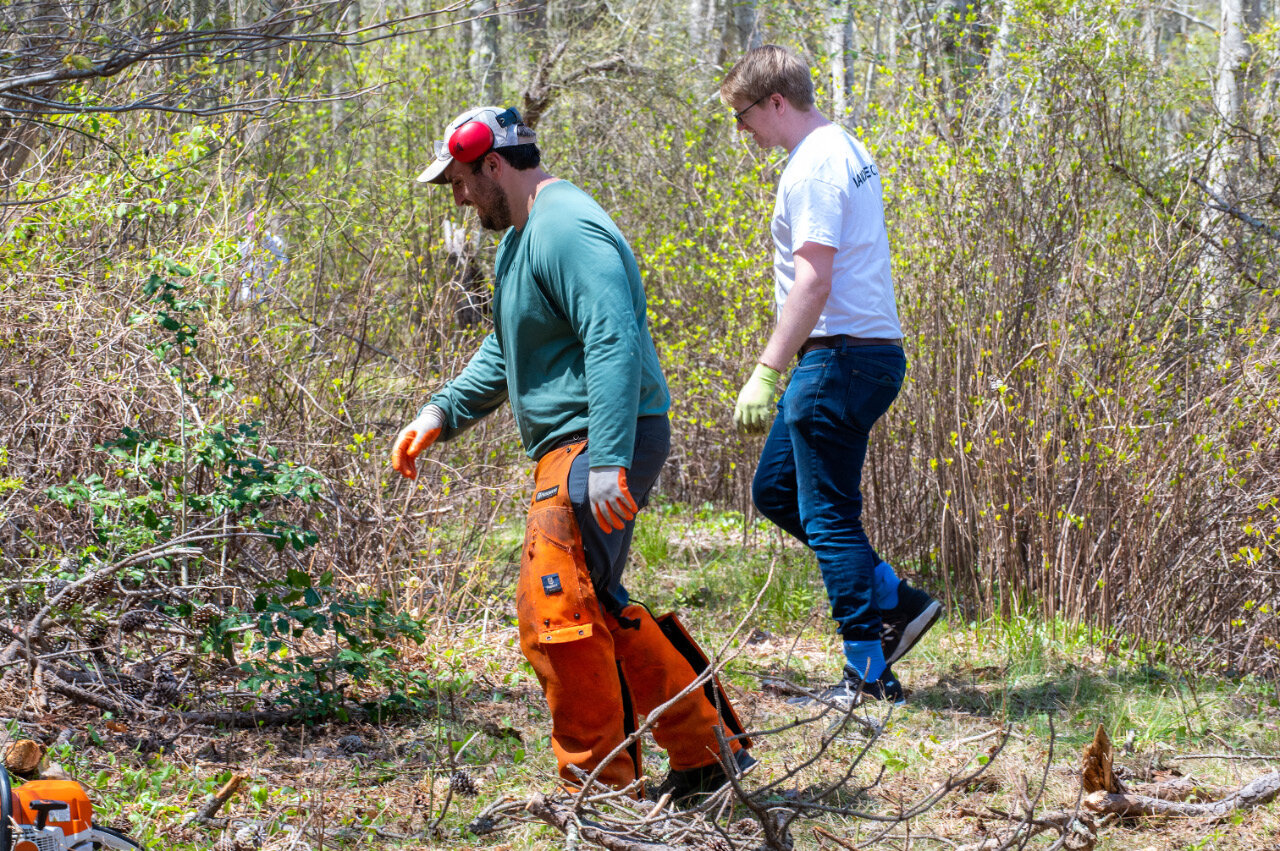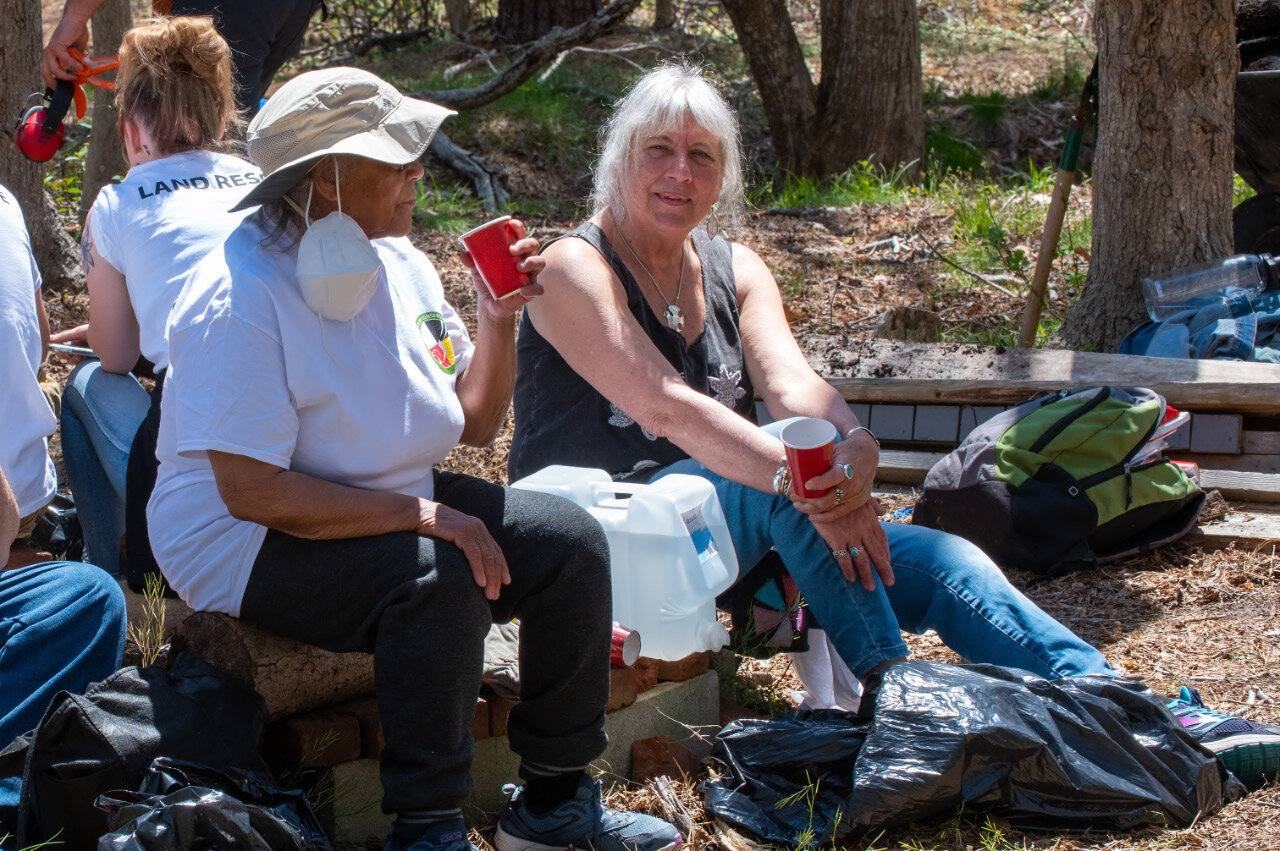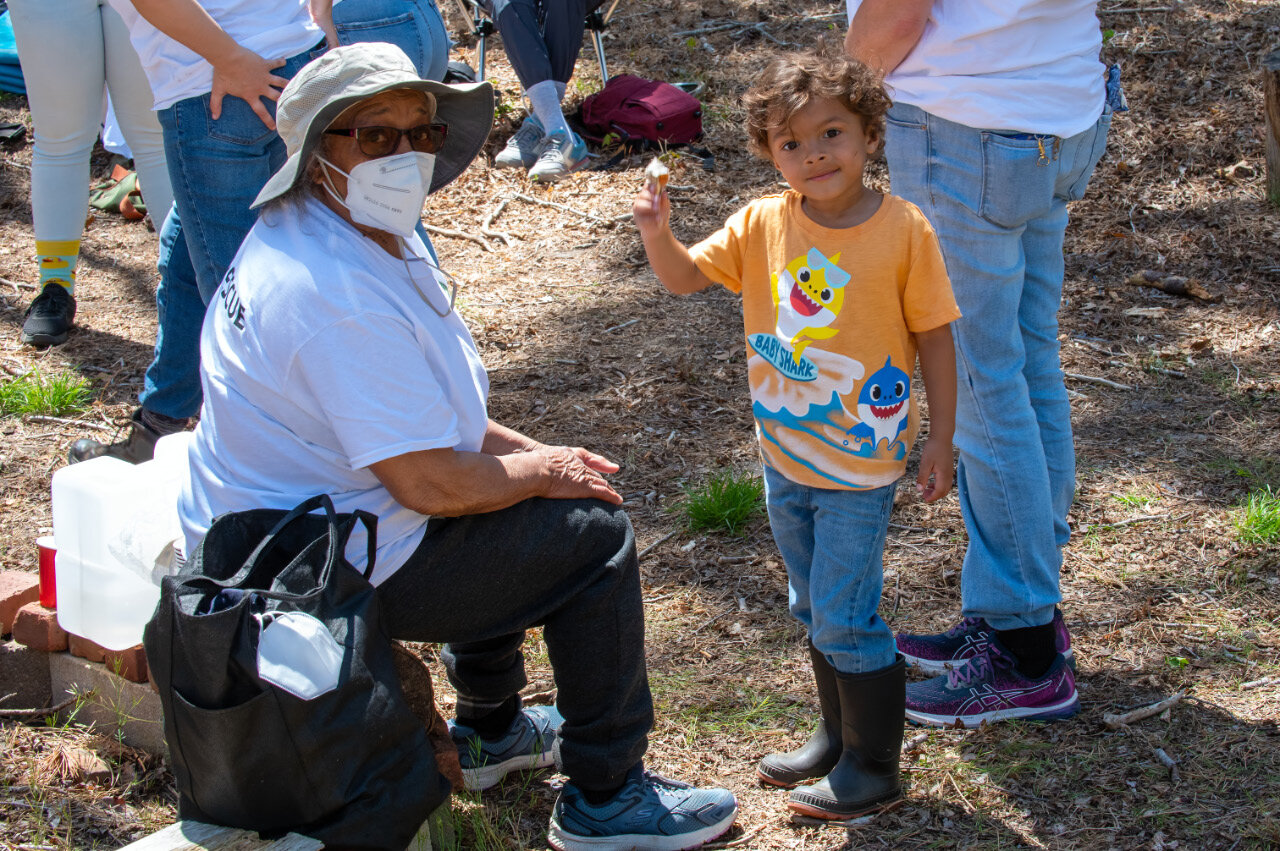HANOVER – On Friday, July 23, 2021, a months-long collaboration between regional conservation group, Wildlands Trust, and the Town of Hanover culminated with the purchase and permanent protection of Sylvester Field. Encompassing a small pine grove and 660-feet of frontage on Third Herring Brook in Hanover’s Four Corners neighborhood, Sylvester Field’s highly-visible 10-acre meadow and stone wall bordering Washington Street is a cherished part of the town landscape. It has both historical and ecological value, and has long served as an agricultural, recreational and aesthetic resource for the community.
In May, with support from the Hanover Open Space Committee and the Hanover Historical Commission, residents of Hanover unanimously approved the use of $250,000 in Community Preservation Act funds to purchase a permanent Conservation Restriction on the field. With this partnership, along with the generous contributions of 307 individual donors, Wildlands Trust was able to act quickly on the rare opportunity to purchase this highly-valuable parcel of open space in Hanover.
“It was an incredible effort, with hand-delivered mailings, personal solicitations, a farmers market, banners, signs, field tours and more, which continued unabated until the goal was reached!” marveled Sue Chamberlain, Wildlands Trust’s Donor Relations Manager. According to Chamberlain, this grass-roots effort proved critical for the success of the project. A core group of 16 volunteers, led by Four Corners resident, Caleb Estabrooks, raised $150,000 to be combined with a $200,000 matching gift from a generous donor. This community-generated funding supplied half of the total cost of the land in just six months.
Most recently known to many locals as Robinson Field, the last property owner was Clayton Robinson, who died in March 2020. Under his family’s ownership, a mowed path was maintained around the edge of the field, and local residents have long-enjoyed walking past the tall grass, through the pines, and down to the water’s edge. After his death, Robinson’s cousin and estate representative, Debbie Lincoln, was an important advocate among family members for the preservation of the scenic open field and the continued public use of its frequently-visited walking trails.
When presented with the opportunity to preserve this land, Wildlands Trust immediately recognized the ecological value of Sylvester Field. The property is home to numerous wildlife species, both common and rare, and provides an extensive riparian habitat along the Third Herring Brook, an important tributary of the larger North River.
Under Wildlands Trust’s ownership, Sylvester Field will be maintained in its current state. The field-edge walking trails will remain and annual mowing of the field itself will continue. The addition of a small parking area and an informational kiosk will improve accessibility for public enjoyment of the preserve.
Long before European arrival, Native Americans occupied the area, including the field, which lies at a strategic location near the confluence of Third Herring Brook and the North River. In the mid-1600s, it was owned by William Barstow, who is believed to be the first European settler in the area. It later became part of a larger farm, changing hands to the Stockbridge family and then the Sylvester Family. When the Sylvester family sold much of the farm in the 1940s, Betsey (Sylvester) Robinson purchased this parcel to save it from development. The land continued to be used for agricultural purposes for many years, including the grazing of Hornstra Farms cows and the production of hay, before settling into its latest role as a scenic resource for the community.
Wildlands Trust is a non-profit organization dedicated to conserving land and preserving the natural heritage of Southeastern Massachusetts. The organization works to permanently protect and steward important habitats and landscapes, including woodlands and fields, ponds, coastal areas, agricultural lands, and river systems. Founded in 1973, Wildlands Trust has worked to protect nearly 13,000 acres of open space in 48 Massachusetts towns, including: Great River Preserve, in Bridgewater; Brockton Audubon Preserve; Cow Tent Hill Preserve and Cushman Preserve in Duxbury; the Nook in Kingston; Hoyt-Hall Preserve in Marshfield; Willow Brook Farm in Pembroke; and the Davis-Douglas Conservation Area in Plymouth.

